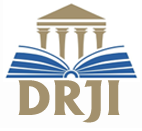IMPLEMENTASI PENDIDIKAN AKHLAQ DI SMP MUHAMMADIYAH 9 SURABAYA SEBAGAI SEKOLAH AKHLAQ
Abstract
Keywords
Full Text:
PDFReferences
Amiruddin, Amiruddin. 2021. "Urgensi Pendidikan Akhlak : Tinjauan Atas Nilai Dan Metode Perspektif Islam Di Era Disrupsi." Journal of Islamic Education Policy 6(1): 1-19.
Creswell, J. W. (2018). Qualitative inquiry and research design: Choosing among five approaches (4th ed.). SAGE Publications. https://doi.org/10.4135/9781506335161
Fahmi, A., Yuliana, D., & Rahman, M. (2021). The Influence of Tahfidz Qur'an Program on Students' Emotional Intelligence and Self-Control. International Journal of Islamic Educational Psychology, 4(2), 115-128. https://doi.org/10.33650/ijiep.v4i2.2855
Freudenthal, H. (1991). Revising Mathematics Education. Dordrecht: Kluwer Academic Publishers.
Hadi, M. Fazlurrahman, Adela Yuana Ramadhani, Ika Puspitasari. 2022. "Application of the Crossword Puzzle Method in Overcoming the Difficulty of Reading Arabic Pegon on Santri at Madrasah Diniyah Takmiliyah Al-Fithroh Sedayulawas Brondong Lamongan." Madrosatuna: Journal of Islamic Elementary School 6(1): 31-40.
Hidayat, M., & Maulana, R. (2023). Parental involvement in strengthening students' religious character in Muhammadiyah Junior High Schools. Jurnal Pendidikan Islam, 12(1), 22-34. https://doi.org/10.24042/jpi.v12i1.10584
Irfan Setia Permana W. 2022. "Pendidikan Agama Islam Dan Pembentukan Akhlak Siswa." Inspirasi Dunia: Jurnal Riset Pendidikan dan Bahasa 1(4): 186-92.
Lubis, Nada Shofa. 2022. "Pembentukan Akhlak Siswa Di Madrasah: Kontribusi Lingkungan Sekolah, Kompetensi Guru, Dan Mutu Pendidikan." Jurnal Pendidikan Agama Islam Al-Thariqah 7(1): 137-56.
Madya, S. (2011). Teori dan Praktik Penelitian Tindakan (Action Research). Bandung: Alfabeta.
Nenden Siti Nurkholillah. 2013. "Apresiasi Tari Budaya Dalam Seni Tarawangsa Pada Siswa PAUD Ananda Putra Bungur Sumedang Universitas Pendidikan Indonesia." : 25-44.
Ningsih, S., & Mulyadi, D. (2020). Qualitative approaches in Islamic educational research: Challenges and implications. TARBIYA: Journal of Education in Muslim Society, 7(2), 175-188. https://doi.org/10.15408/tjems.v7i2.16152
Qodri, M. (2020). Integrasi nilai religius dalam pembelajaran sebagai upaya mengurangi perilaku devian siswa. Al-Tadzkiyyah: Jurnal Pendidikan Islam, 11(2), 225-240. https://doi.org/10.24042/atjpi.v11i2.7315
Rahmawati, N., & Kurniawati, I. (2021). Religious-based character education model in Islamic schools. Cendekia: Jurnal Kependidikan dan Kemasyarakatan, 19(2), 239-254. https://doi.org/10.21154/cendekia.v19i2.2880
Riami, Riami, Devy Habibi Muhammad, and Ari Susandi. 2021. "Penanaman Pendidikan Akhlak Pada Anak Usia Dini Menurut Ibnu Miskawaih Dalam Kitab Tahdzibul Akhlak." FALASIFA : Jurnal Studi Keislaman 12(02): 10-22.
Setiawan, M. (2022). Spiritual-based learning as a moral awareness reinforcement model in Islamic education. Al-Ishlah: Jurnal Pendidikan, 14(3), 2899-2909. https://doi.org/10.35445/alishlah.v14i3.1994
Suryani, Ira et al. 2021. "Karakteristik Akhlak Islam Dan Metode Pembinaan Akhlak Dalam Pemikiran Al-Ghazali." Islam & Contemporary Issues 1(1): 31-38.
Syahrul, A., & Ramadhani, T. (2022). Islamic extracurricular activities and leadership character building among Muhammadiyah students. Islamic Guidance and Counseling Journal, 5(1), 56-69. https://doi.org/10.25217/igcj.v5i1.1426
Tranggono, Kamila Jastisia Jasmin, Muhammad Rizqi Amali, Lola Nashwa Aginza, Shania Zahra Rizqitta Sulaiman, Femas Agil Ferdhina, Daafa Abdan Maulaana Effendie. 2023. "PENGARUH PERKEMBANGAN TEKNOLOGI DI ERA GLOBALISASI DAN PERAN PENDIDIKAN TERHADAP DEGRADASI MORAL PADA REMAJA." Bureaucracy Journal: Indonesia Journal of Law and Social-Political Governance 3(2): 1927-46.
Yusuf, A., & Arifin, M. (2022). Religious school culture as a determinant of students' moral development. Journal of Islamic Educational Studies, 10(1), 11-25. https://doi.org/10.36706/jies.v10i1.1598
Zaini, Penerbit Muhammad et al. 2023. Metodologi Penelitian Kualitatif.
Zuldafrial. 2021. "Metode Penelitian." Repository Stei: 20-30. http://www.academia.edu/download/35360663/METODE_PENELITIAN_KUALITAIF.docx.
DOI: http://dx.doi.org/10.30821/hijri.v14i2.26423
Refbacks
- There are currently no refbacks.
Copyright (c) 2025 Hijri

This work is licensed under a Creative Commons Attribution-NonCommercial-NoDerivatives 4.0 International License.
Organizational Collaboration:
Hijri: Jurnal Manajemen Kependidikan dan Keislamanhas been indexed by:
Jurnal Hijri by Program Studi Manajemen Pendidikan Islam FITK Universitas Islam Negeri Sumatera Utara is licensed under a Creative Commons Attribution-NonCommercial-ShareAlike 4.0 International License.










2.png)


